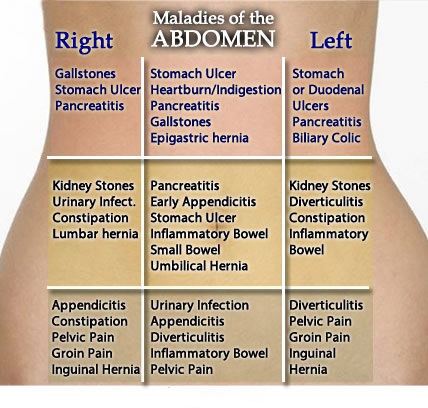There are several causes of low abdominal pain. Some of these are less serious than others, but you should always see a doctor if you notice any type of discomfort. For example, if you feel abdominal bloating after eating, this could mean that you are suffering from irritable bowel syndrome (IBS). You might also be suffering from food allergies or lactose intolerance, or you might have a stomach virus. On the other hand, you may have a more serious condition, such as appendicitis or diverticulitis. These conditions are painful and can lead to other complications, including heart attack, menstrual cramps, pneumonia, and other medical conditions.
If you suffer from low abdominal pain, the first step in seeking medical attention is identifying the cause. The underlying cause of your pain may be a bacterial infection, or it may be an ulcer. A doctor will likely recommend taking antibiotics for these infections to prevent further complications. If you suspect an underlying disorder, your doctor will order blood tests to rule out other causes of the discomfort. If you think your condition is a pregnancy-related problem, your doctor may want to perform a pregnancy test or a CT scan to rule out other possible causes of your pain. In cases of unexplained abdominal pain, surgery may be necessary.
Another treatment option for this condition is a mild painkiller like paracetamol. You may need a higher dose to relieve your symptoms. If you do not have an IBS, you may try taking a few pills for indigestion. This can help you to get through the day without worrying about your symptoms again. If you continue to have low abdominal pain, your doctor will likely prescribe some kind of medication. If this is not effective, your doctor might recommend surgical options. These treatments are often very effective and can often resolve the problem.
A doctor can also recommend the use of medications, such as paracetamol. A doctor may prescribe an antibiotic if it is suspected that a bacterial infection is the source of your low abdominal pain. However, this treatment is only a temporary solution and should be taken under medical supervision. If you have no other option, you should consult a doctor immediately. A physician will be able to prescribe the best treatment for your symptoms.

Other causes of lower abdominal pain include bacterial infections, gastrointestinal disorders, and menstrual cramps. For example, if you experience persistent discomfort, your doctor may prescribe antibiotics. If the pain gets worse when you cough, your symptoms may indicate a more serious problem. Depending on the source of your pain, you may want to try self-help measures and use prescription medications to treat it. If you experience severe symptoms, your doctor may prescribe more aggressive treatment, such as surgery.
Although the exact cause of lower abdominal pain is unknown, the symptoms of this condition are very similar. For example, a woman may feel pain in the lower abdomen after eating, and a man may experience severe stomach upset. Both men and women can experience this type of abdominal pain, and the symptoms vary for each. Some causes of lower abdominal muscle cramps are localized and cause colic. The latter is associated with problems with a specific organ.
The causes of pain in the lower abdomen are difficult to determine. Symptoms and location of pain are often indistinguishable. The most common cause of lower abdominal pain is indigestion. This is a symptom of a bacterial infection. Depending on the type of bacterial infection, you may experience generalized or localized pain. The pain may be generalized or localized. It usually gets worse with coughing or movement.
The causes of pain in the lower abdomen can be a variety of diseases. Some cases resolve on their own and may improve on their own. Other types of abdominal pain may require medical attention and recommendations on the website https://optrix.asia/. Some of these causes are related to food allergies or a stomach virus. They are chronic and recurrent. Other reasons are temporary or short-term. Some symptoms appear and disappear at random intervals. Although there is no single cause for bloating, a person with the condition may experience periodic bouts of intense or even frequent bouts of abdominal discomfort.
